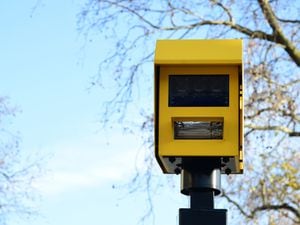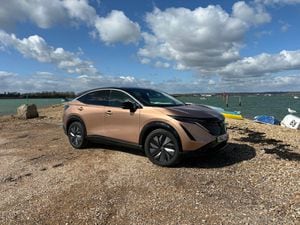Jaguar joins wireless electric vehicle charging project in Norway
British firm is joining with a Nordic taxi operator to install wireless charging infrastructure for its fleet.

Jaguar Land Rover has joined a project that will see electric taxis charged wirelessly in Oslo, Norway.
The ‘ElectriCity’ programme is a joint venture between the British car maker, Nordic taxi operator Cabonline, charge point operator Fortum Recharge and US technology firm Momentum Dynamics.
It will be the first wireless taxi charging system in the world and was seen as the ideal way to test the technology because taxi drivers require a charging solution that does not take them off their route.

Multiple charging plates, which can charge at speeds of up to 75kW each, will be installed in the ground at various pick up and drop off points across Oslo. By providing a few minutes of charge whenever the taxi is between fares, it is hoped the vehicles will retain enough charge throughout the day that they will not need to stop taking fares to top up at a wired charge point.
Fortum Recharge worked with Momentum Dynamics to develop the technology, with Jaguar Land Rover engineers helping to test the solution. It will also provide 25 Jaguar I-Pace SUVs to Cabonline for real-world testing.
Sir Ralf Speth, Jaguar Land Rover CEO, said: “We’re extremely proud of our track record in electrification and we’re committed to making electric vehicles easier to own and use. The taxi industry is the ideal test bed for wireless charging, and indeed for high-mileage electric mobility across the board.
“The inherently safe, energy efficient and high-powered wireless charging platform will prove critical for electric fleets, as the infrastructure is more effective than refuelling a conventional vehicle.
“We’re delighted to be part of ElectriCity and to continue to lead the field in electric vehicle technology. This is a great step forward to reaching our Destination Zero mission.”
Arild Hermstad, the City of Oslo’s vice mayor for environment and transport, said: “We’re delighted to welcome private enterprises to help us to turn our vision into reality.
“As part of our commitment to reducing emissions by 95 per cent before 2030, we have put many exciting measures in place, but transport continues to be a key challenge. By improving infrastructure and providing better charging to the taxi industry, we are confident that by 2024 all taxis in Oslo will be zero emission. To reach our goal, the public sector, politicians and private enterprises must come together, as we do in this project.”





